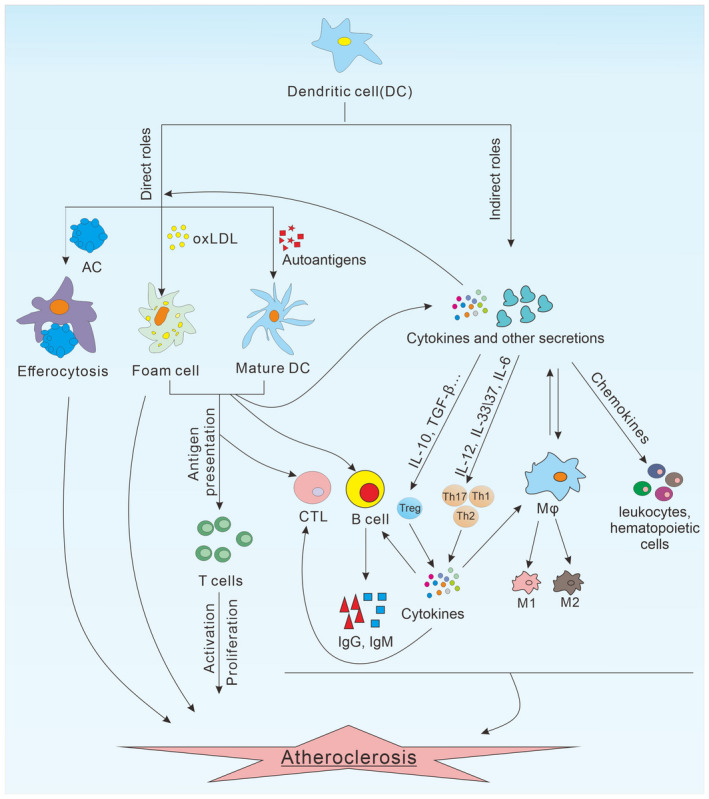FIGURE 1.

Multiple roles DCs during atherogenesis. DCs play an important role in the development of atherosclerosis through direct or indirect effects. DCs can uptake lipids directly to form foam cells, which are an important part of plaque at the early stage of the disease. Furthermore, the DCs that mature after exposure to AS‐associated autoantigens can present antigens to T cells to promote their activation and proliferation. In addition, DCs can also clear apoptotic cells in plaques by efferocytosis. Indirectly, DCs can regulate the function of other immune cells by cytokines and other soluble factors. DCs can secrete chemokines to recruit circulating leucocytes or haematopoietic cells to the vascular region. The production of conditioning cytokines from DCs control the differentiation of T cells into various T effectors [T helper type 1 (Th1), Th2, Th17 and regulatory T cells (Treg)], regulate the activation of B cells, polarize macrophages and activate CTLs, which ultimately result in immune destruction of vascular walls and onset of atherosclerosis. DCs = dendritic cells; AC = apoptotic cell; CTL = cytotoxic T lymphocyte; oxLDL = oxidized low‐density lipoprotein; Mφ = macrophage; M1 = M1 macrophages; M2 = M2 macrophages
